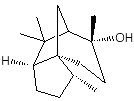We are now adding to our line-up of product the hinoki wood aroma oil.
This blog entry is to provide the same level of information for the stonger "hiba oil"
There is a saying: "in a house made of hiba, mosquitos do not come for 3 years".
Here are some detailed information about the tree also known as Arborvitae (tree of life):
Botanical Name: Thujopsis dolabrata
Synonyms: Thuja dolobrata, Thuja, Hiba, Aomori Hiba, Asnaro, Arborvitae.
Family: Cupressaceae (Cypress Family)
Plant Part: wood (no bark or leaves).
Actually we extract the oil from wood chips and construction material scraps of Aomori Hiba tree. This means that the wood is all from the core of the plant (it does not contain sapwood). Another statement we can make is that this is a 100% ecological material. No single tree has been cut to produce the oil.
Extraction Method: Steam Distillation.
Neutral oils: Thujopsene, Cedrol, U-idrol
Acid oils: Cuparene, Terpinen, β-Doraburin, Carvacrol, i- rosin acid
 |  |  |  |
| Thujopsene (β-thujaplicin or hinokitiol) | Cedrol | Cuparene | Terpinen |
Origin: Japan (Aomori prefecture)
Oil Color: yellow liquid.
Consistency: Thin
Strength of Aroma: Strong
Scent: Hiba Wood Essential Oil has a strong woody scent reminiscent of Cedarwood. It is different from Port Orford cedar and american conifers as its content of pinene is low.
Blends well with: Bergamont, Boronia, Clary Sage, Cypress, Calamus, Cassie, Frankincense, Jasmine, Juniper, Labdanum, Mimosa, Neroli, Rosewood, Rosemary, Vetiver, etc.
Emotional description: spicy, musky, woody, oriental and mysterious.
People who liked Hiba wood aroma also liked Hinoki, Shalimar, Obsession, Opium or Ciara.
Cautions: Generally hypoallergenic, non-irritating and non-sensitizing.
* Toxic when ingested.
* When using directly on skin or scalp, try first on a small portion of your skin to see if any reaction develops. If you experience skin irritation, burning, itching or any other symptom, you might be experiencing an allergic reaction. Discontinue use until a doctor can perform a screen.
* Pets: Avoid using hiba-oil (or any cedar extract product) as a flea treatment for cats, which are particularly susceptible to plant-oil poisoning. About dogs: verify the usability and dosage with your veterinary.
* Avoid use during pregnancy.

 Kobe Kazamidori chapter
Kobe Kazamidori chapter

